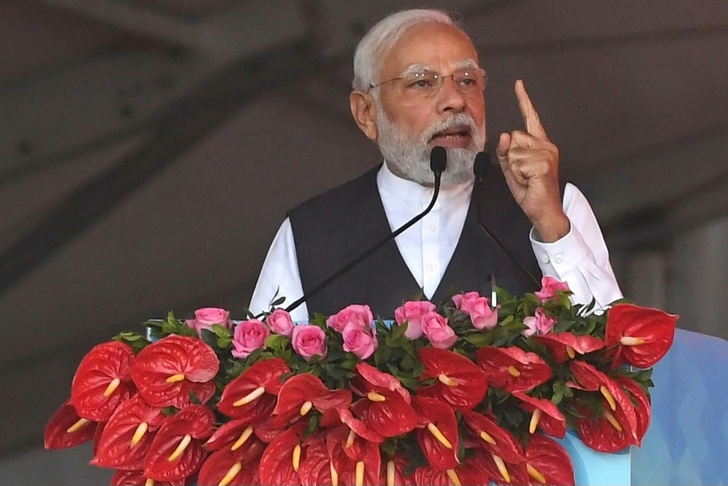Indian Prime Minister Narendra Modi added his voice Friday to calls for the reform of global lenders such as the World Bank, as G20 finance ministers and central bank heads met.
The talks in Bengaluru were expected to focus on the continuing damaging effects of the Covid pandemic and the Ukraine war, as well as debt relief for poorer nations reeling from high food and fuel prices.
"Trust in international financial institutions has eroded. This is partly because they have been slow to reform themselves," Modi said by video link as the two-day gathering began.
"Even as the world population has crossed eight billion, progress on sustainable development goals seems to be slowing down. We need to collectively work to strengthen multilateral development banks for meeting global challenges like climate change and high debt levels," he said.
The remarks echoed calls by others for the World Bank to boost lending and widen its remit beyond tackling poverty, although this has raised concerns that it could lose its top-notch credit rating.
US Treasury Secretary Janet Yellen said on Thursday in Bengaluru it was "critical that they integrate work on global challenges into their core mission to sustain progress on these priorities".
World Bank chief David Malpass earlier this month said he was stepping down a year early and on Thursday Washington nominated Indian-American former Mastercard CEO Ajay Banga as his successor.
Nominated by former US president Donald Trump, Malpass came under fire last year after he refused multiple times to say if he believed man-made emissions contributed to global warming.
It was unclear if delegates in Bengaluru would manage to agree a joint statement, in particular because of differences over the Ukraine war. The last three meetings have failed to do so.
The International Monetary Fund said ahead of the meeting that around 15 percent of low-income countries are in debt distress and an additional 45 percent are at high risk.
The IMF said it was convening in Bengaluru a new Global Sovereign Debt Roundtable, in order to "pave the way for creditors, both public and private, and debtor countries to work together".
The G20's Common Framework for Debt Treatments has so far had limited success, largely on account of disagreements between China and other large creditor countries.
Last week, UN Secretary General Antonio Guterres called on G20 countries to agree a $500 billion annual stimulus for its sustainable development agenda that could "cushion the impacts of current global crises on the global south".
Discussions around green industry financing will be in focus after the European Commission laid out its Green Deal Industrial Plan earlier this month -- a move seen to counter the US Inflation Reduction Act.
Global tax reform could emerge as another point of conflict as plans for a global digital tax remain stalled in the absence of consensus between European nations and the United States.
ng-stu/dan
© Agence France-Presse
Your content is great. However, if any of the content contained herein violates any rights of yours, including those of copyright, please contact us immediately by e-mail at media[@]kissrpr.com.
Source: Story.KISSPR.com

